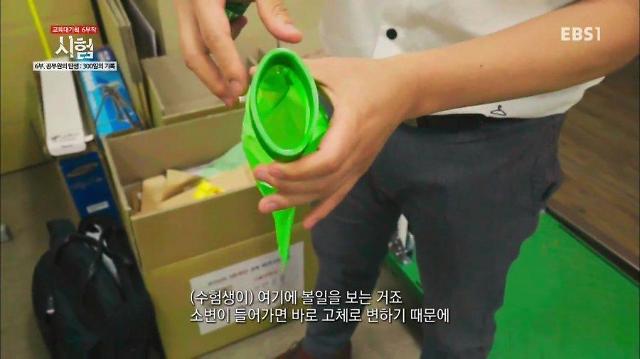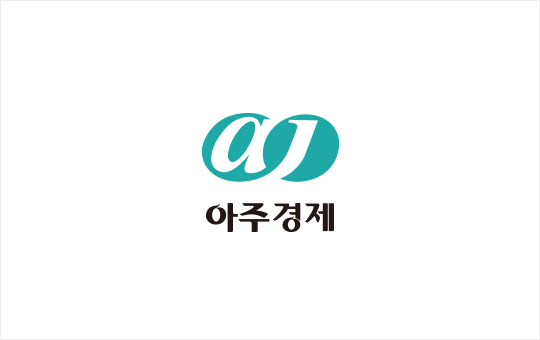
[A screenshot captured from EBS]
During South Korea's civil-service exams, nobody has been allowed to use toilets regardless of gender for decades, despite incessant debate about human right violations.
To avoid an embarrassing situation when nature called, those who want to become public servants had to use buckets placed at the back corner of exam rooms in the 1980s.
Until recently, the so-called "urine pouch", a plastic bag containing a substance which turns solid when it meets moisture, has been used. Men had to take care of themselves while supervisors covered female applicants with an umbrella. Only the disabled and the pregnant were allowed to visit toilets during the 140-minute exams.
Government officials had insisted that restrictions on toilets were aimed at preventing cheating and ensuring fairness because anyone who leaves the exam room cannot re-enter.
Finally, the urine pouch disappeared this year after the National Human Rights Commission of Korea, a state watchdog, condemned it as a serious human rights violation.
The Ministry of Interior and Safety in charge of exams said that at exams in 16 places nationwide on September 23, applicants were allowed to use toilets twice. But toilet visitors were tested with a metal detector each time they enter and leave the cubicles.
Copyright ⓒ Aju Press All rights reserved.


